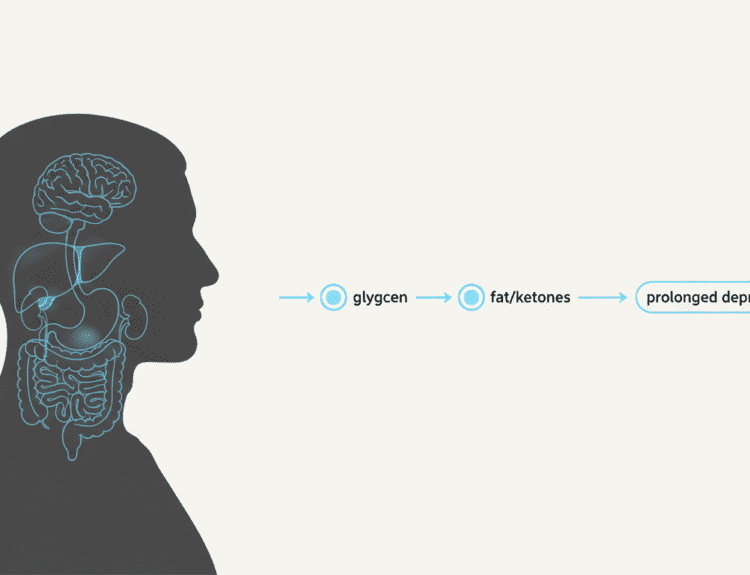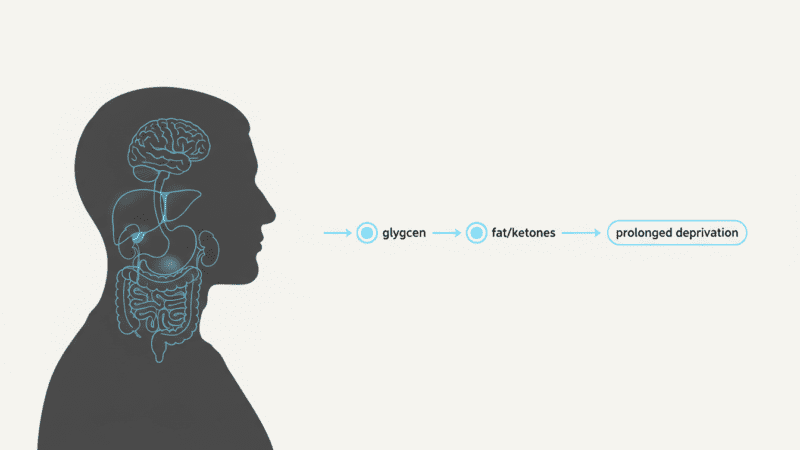Few rituals are as universal—or as cherished—as the morning cup of coffee. For millions of people, that first sip is more than a drink. It’s a small daily anchor, a signal that the day has started, and a reliable source of energy and comfort.
But what is actually happening inside your brain and body when you drink coffee? And why does your morning cup of coffee matter more than you might think?
In this guide, we’ll unpack the science behind coffee, its short‑term and long‑term effects, and how to enjoy it in a way that supports your health rather than harms it.
The Chemistry of Coffee: More Than Just Caffeine
Coffee is one of the most chemically complex beverages we consume. A single cup can contain over a thousand bioactive compounds, including:
- Caffeine – the best‑known stimulant
- Chlorogenic acids – plant-based antioxidants
- Diterpenes (cafestol and kahweol) – compounds that may affect cholesterol levels depending on how coffee is brewed
- Polyphenols and other antioxidants – which help fight oxidative stress
Caffeine is the main reason you feel more awake. It works by blocking adenosine, a neurotransmitter that makes you feel sleepy as the day goes on. When adenosine is blocked, levels of other neurotransmitters—like dopamine and norepinephrine—rise, leading to:
- Increased alertness
- Better concentration
- A temporary lift in mood
“Coffee is a lot more than just a caffeine delivery system. It’s a rich source of antioxidants and other compounds that can have significant effects on health.”
— Dr. Rob van Dam, Professor of Nutrition
So while caffeine gets the attention, the whole story of coffee is a complex mix of chemistry that touches almost every system in your body.
How Morning Coffee Affects Your Brain: Focus, Memory, and Mood

That familiar wave of clarity after your first cup is not your imagination—it’s neurochemistry.
1. Sharper focus and reaction time
Multiple studies have found that moderate caffeine intake can improve:
- Attention and concentration
- Reaction time
- Short‑term memory
By blocking adenosine and increasing dopamine in certain brain regions, coffee helps you feel more alert and motivated, especially in the first few hours of your day. Research summarized by Harvard Health notes that caffeine can enhance cognitive performance in tasks that require sustained attention.
2. Mood and motivation
Dopamine is sometimes called the “feel-good” neurotransmitter. When caffeine modestly increases dopamine signaling, many people experience:
- A brighter mood
- A sense of drive to start tasks
- Less perceived effort in doing mentally demanding work
This is one reason why coffee has become so tightly linked with productivity and morning routines.
3. Brain health over the long term
Interestingly, observational studies suggest that regular coffee drinkers may have a lower risk of neurodegenerative diseases such as Parkinson’s and Alzheimer’s disease, possibly thanks to coffee’s antioxidant and anti-inflammatory effects (Johns Hopkins Medicine).
While these studies don’t prove cause and effect, they add to a growing picture of coffee as more than a quick brain boost.
What Coffee Does to Your Body: Metabolism, Performance, and Protection

Your morning coffee doesn’t just wake up your mind—it also affects your entire body.
1. Metabolism and fat burning
Caffeine is known to increase metabolic rate for a short period after consumption. It stimulates the nervous system, which signals fat cells to break down stored fat and release fatty acids into the bloodstream. This is one reason caffeine appears in many commercial fat‑burning supplements.
However, the effect is modest, and relying on coffee alone for weight loss is unrealistic. Think of it as a small helper, not a magic solution.
2. Physical performance
When caffeine mobilizes fatty acids, your muscles can use them for energy. Studies have shown that consuming caffeine before exercise can:
- Improve endurance
- Reduce perceived exertion
- Enhance performance in certain sports
For early‑morning workouts, a well‑timed cup of coffee can be a practical, low‑cost performance aid.
3. Antioxidants and inflammation
Coffee is one of the biggest sources of antioxidants in many people’s diets. Compounds like chlorogenic acids help neutralize free radicals and may reduce low‑grade inflammation in the body. This antioxidant effect is thought to contribute to the observed lower risk of some chronic diseases among coffee drinkers (Healthline).
Long‑Term Health Benefits: What the Research Suggests
Large population studies have linked regular, moderate coffee consumption to a lower risk of several chronic conditions, including:
- Type 2 diabetes – Many studies have found that people who drink 3–4 cups of coffee per day have a reduced risk of developing type 2 diabetes.
- Parkinson’s disease – Caffeine intake has consistently been associated with a lower risk of Parkinson’s.
- Certain cancers – Research has suggested a potentially lower risk of liver and colorectal cancers among habitual coffee drinkers.
- Liver health – Coffee appears to protect the liver and is associated with a lower risk of liver cirrhosis and non‑alcoholic fatty liver disease.
These findings don’t mean coffee is a cure or a guarantee, but they do suggest that, for most healthy adults, coffee can be part of a long‑term, health-supportive lifestyle when consumed in moderation.
The Power of the Ritual: Mindfulness in a Mug
Not all of coffee’s benefits are biochemical. Part of its magic lies in the ritual.
- Grinding the beans
- Waiting for the kettle to boil
- Smelling the aroma
- Taking the first slow sip
This short, predictable routine can act as a daily grounding practice—a moment to breathe before emails, news, and notifications flood your day. In psychological terms, these small rituals can:
- Create a sense of stability
- Help you transition into “work mode”
- Promote mindfulness if you drink your coffee with deliberate attention
In a world that often feels rushed, your morning coffee can double as a simple mental health tool—a small pause that reminds you to slow down, even for a minute.
How Much Is Too Much?
Like many good things, the benefits of coffee depend heavily on dose and timing.
Most health organizations, including the Mayo Clinic, suggest that for most healthy adults:
- Up to 400 mg of caffeine per day—roughly 3–4 standard cups of brewed coffee—is considered safe.
Going beyond that can increase the risk of side effects such as:
- Jitters and restlessness
- Insomnia or poor sleep quality
- Rapid heart rate or palpitations
- Digestive discomfort
It’s also worth remembering that caffeine can stay in your system for 5–6 hours or more. If you struggle with sleep, cutting off coffee by early afternoon can make a noticeable difference.
Who Should Be Careful with Coffee?
While coffee offers many potential benefits, it’s not ideal for everyone.
- Pregnant women – The American College of Obstetricians and Gynecologists recommends limiting caffeine intake during pregnancy; many guidelines suggest keeping it below 200 mg per day. Always follow your healthcare provider’s advice.
- People with anxiety disorders – Caffeine can worsen anxiety, racing thoughts, or panic in sensitive individuals. If you notice your heart racing or your mind spinning after coffee, consider cutting back.
- People with certain heart conditions or acid reflux – Some individuals may experience palpitations or digestive issues with even moderate amounts of coffee.
If you fall into any of these groups—or simply feel unwell after drinking coffee—talk with a healthcare professional about what level of intake is safe for you.
Making Your Morning Coffee Healthier
You don’t have to give up your beloved brew to make it a bit healthier. Small tweaks can keep the benefits while reducing the downsides.
Here are a few ideas:
| Habit | Why it helps |
|---|---|
| Skip or reduce sugar | Lowers empty calories and blood sugar spikes |
| Avoid heavy creamers | Reduces saturated fat intake |
| Don’t drink on a totally empty stomach if you’re sensitive | May reduce jitters or stomach discomfort |
| Have your last coffee at least 6 hours before bed | Protects sleep quality |
| Try filtered coffee if you’re worried about cholesterol | Paper filters reduce certain diterpenes that can raise LDL in high amounts |
Frequently Asked Questions About Morning Coffee
1. Is it better to drink coffee before or after breakfast?
For many people, drinking coffee with or after a small meal is gentler on the stomach and may reduce jitters. If you feel shaky or light‑headed when you drink coffee on an empty stomach, try pairing it with food.
2. Does coffee dehydrate you?
Coffee has a mild diuretic effect, but for regular drinkers, it rarely causes dehydration. It still counts toward your daily fluid intake, though it shouldn’t replace water completely.
3. Is espresso healthier than regular brewed coffee?
Both can be part of a healthy diet. Espresso shots are more concentrated, so they contain more caffeine per ounce, but usually less total caffeine per serving compared to a large mug of brewed coffee. The healthiest choice depends more on how much you drink and what you add (sugar, syrups, etc.).
4. Can I drink coffee if I’m trying to lose weight?
Black coffee is very low in calories, and its small boost to metabolism may help slightly. The problem usually comes from added sugar, flavored syrups, and cream. If weight loss is your goal, focus on simpler, less sugary coffee drinks.
Final Sip: More Than Just a Drink
Your morning coffee isn’t just a habit—it’s a powerful blend of chemistry and ritual. In the short term, it can sharpen your focus, lift your mood, and help you start the day with more energy. Over the long term, regular, moderate coffee consumption is linked with a lower risk of several chronic diseases.
The key is mindful moderation:
- Enjoy 1–3 cups spread through the day
- Avoid loading it with sugar and heavy creamers
- Pay attention to how it affects your sleep, heart, and anxiety levels
So the next time you reach for your morning cup, remember: you’re not only waking up—you’re giving your brain and body a carefully brewed boost, one sip at a time.










[…] Coffee is a beloved beverage for many, offering a comforting ritual and a much-needed jolt of energy to kickstart the day. Its rich aroma and stimulating effects are often synonymous with productivity and alertness. However, while coffee can be a fantastic ally, there are certain times and situations when it might be more beneficial to put down that cup. Understanding these moments can help you harness coffee’s benefits without experiencing its potential downsides. […]